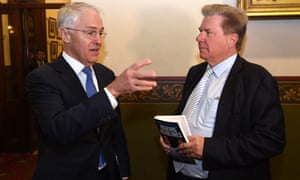Heavy machinery whirrs and clanks on the factory floor of precision metalworking firm Robert Bion & Co, where a planned three-meter robotic arm would have been speeding up output by now, if Britain had not voted to leave the European Union.
"We're waiting to get a clear idea of what the future might be before we make any significant investments," owner Nick Bion said at the company his father founded in 1964 in Reading, west of London.
Britain's economy has held up better than most economists predicted since voters chose in June to quit the EU. Consumers have carried on shopping and employers have not laid off workers on a large scale, despite uncertainty over the country's future trade relations with its biggest export market.
But Bion's decision not to go ahead with plans to automate part of his production line by installing the 150,000 pound ($195,000) robotic arm is the kind of investment curb which is likely to damage the economy over the longer term.
He had been close to placing the order in March but put the project on hold pending the referendum, even though he, like most people, thought Britain would stay in the EU. When voters opted to leave, he scrapped it altogether because of the risk Brexit would hinder access to the 500 million-strong market.
"I think for lots of people business is good, but that doesn't mean it will be good in three years' time," Bion said, as some of his 28 employees fed perforating machines with the metal and plastic sheets that his firm sells to manufacturers of computer servers, car ventilators and audio devices.
Prime Minister Theresa May has said she will not start the process of Britain's exit from the 28-nation economic and political bloc until next year while she tries to balance voters' expectations of limits on immigration against the need for a smooth trading relationship with the EU.
The exit negotiations will take up to two years from whenever London decides to start the process and May has not said how she plans to get around the EU principle that goods cannot freely cross borders unless people can too.
The government says leaving the EU will allow Britain to free up trade with countries beyond the bloc, but with the outcome so unclear, Bion is not the only one holding back.
The Bank of England said this month that companies' investment intentions were their weakest since 2010, signaling an overall halt or even cut in the rate of growth in such spending in real terms.
The BoE has long hoped for stronger business investment to put Britain's economy on a surer footing. Like Bion, firms had frozen some investment plans before the referendum, the figures showed, but have slashed them __more sharply since June, particularly in the services sector.
The trend looks set to continue. A survey by financial services firm Deloitte conducted after the Brexit vote showed 58 percent of 132 chief financial officers expected Brexit to lower their capital spending plans over the next three years.
Merger and acquisition activity involving British companies has also dropped, to the lowest level in at least two decades, Thomson Reuters data shows. Many small manufacturers are waiting to see the plans of larger companies they supply before taking their own decisions.
Last month, the chief executive of Japanese car manufacturer Nissan said future investment in Britain's biggest car plant in Sunderland, northeastern England, would depend on the terms of the eventual new deal with the EU.
Bion said the investment plans of big manufacturers like Nissan were bellwethers for his firm. "Everybody's just waiting at the moment," he said.
The family-owned Green Stationery Company, based in the southwestern English city of Bath, does not supply bigger firms.
But it has suspended plans to expand into Europe with new websites and catalogues in Dutch and German and a new sales manager, a combined 35,000 pounds' worth of investment.
"We are not optimistic," managing director Jay Risbridger said. "We are waiting and seeing, but that's what everybody is doing, so it's not good for business confidence."
The Brexit uncertainty has helped some firms because of sterling's roughly 10 percent fall against the U.S. dollar and the euro since the referendum.
The Fudge Kitchen, a confectionery maker with shops in tourist centers such as Oxford and Edinburgh, expects rising numbers of foreign visitors and Britons holidaying at home will __more than offset the higher cost of imported chocolate, freeze-dried ingredients and packaging.
Managing director Sian Holt said she was pressing ahead with plans to invest 100,000 pounds to open a new shop in London and fund product development and marketing. "Whatever happens with Brexit is absolutely not going to deter us with this," she said.
Similarly, Gravitas, which makes flood prevention equipment near Manchester in northern England, had its best month ever in August, with 150,000 pounds of orders from the United States and Hong Kong, managing director Jacob Sallon said.
He plans to invest about 400,000 pounds over the coming year in new designs, registering his company's intellectual property and new faster-absorbing fabrics.
But a majority of big British firms are far less confident. A KPMG survey of 100 chief executives found three-quarters of company bosses were considering moving operations abroad following the Brexit vote.
Many employers want more support from policymakers and are angered by accusations by Liam Fox, the minister in charge of overseeing the Brexit process, that they are too lazy to find new markets.
"These comments feed on from the propaganda they were giving in the referendum, saying we don't need the single (EU) market," the Green Stationary Company's Risbridger said.
The Bank of England has already cut interest rates to a record low and its new corporate bond buying program could help some bigger firms to plough more money into their business.
Executives now hope finance minister Philip Hammond will include tax incentives for investment in his first budget announcement on Nov. 23.
While Bion's firm has continued to receive orders from existing EU clients since the referendum, his main concern is how he will win new ones with the possibility of future tariffs and other barriers which could raise costs and delay deliveries.
"If they think you are going to leave, how likely are you going to be to get a new customer?" Bion said. "You're in a world where you're not quite sure what the future is."

